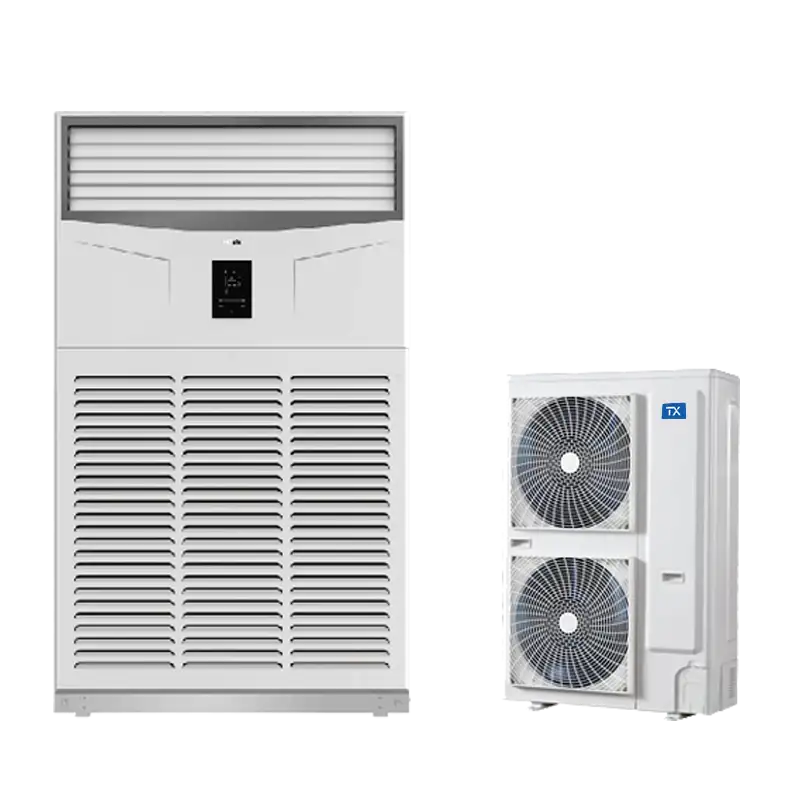Understanding Light Commercial Air Conditioners: A Comprehensive Guide

Light commercial air conditioners (LCAC) play a crucial role in maintaining a comfortable and productive environment in various business settings, from small retail spaces to offices and restaurants. These systems are specifically designed to cater to the cooling and heating needs of smaller commercial establishments, striking a balance between performance, efficiency, and cost-effectiveness.
One of the primary benefits of light commercial air conditioners is their ability to deliver precise temperature control. Unlike larger systems designed for industrial applications, LCAC units focus on smaller areas, allowing for customized climate management that can adapt to the unique needs of different spaces. This feature is particularly important in commercial environments, where varying occupancy levels and equipment heat loads can significantly impact indoor temperatures.
Energy efficiency is another critical aspect to consider when exploring light commercial air conditioners. Many modern units incorporate advanced technology, such as variable speed compressors and smart thermostats, which not only enhance performance but also reduce energy consumption. Businesses can benefit from lower utility bills while contributing to a more sustainable environment by selecting energy-efficient models. Additionally, some systems may qualify for energy rebates or incentives, further enhancing their financial appeal.
Moreover, light commercial air conditioners are often designed with quieter operation in mind. Noise can be a significant concern in commercial environments, as excessive sound levels can disrupt both employees and customers. Many manufacturers prioritize noise reduction technologies, ensuring that these units operate quietly without sacrificing cooling power.
Maintenance is also an important consideration when it comes to light commercial air conditioners. Regular servicing is essential to ensure optimal performance and longevity of the system. Business owners should establish a routine maintenance schedule, which may include cleaning filters, checking refrigerant levels, and inspecting electrical components. Proactive maintenance not only helps avoid costly repairs but also ensures that the system operates at peak efficiency.
When selecting a light commercial air conditioner, it is essential to assess the specific needs of the space. Factors such as square footage, ceiling height, and local climate conditions all play a role in determining the appropriate capacity and type of system. Consulting with HVAC professionals can provide valuable insights and recommendations tailored to individual business requirements.
In conclusion, light commercial air conditioners are a vital component for maintaining a comfortable and productive atmosphere in various commercial settings. By prioritizing energy efficiency, noise reduction, and proper maintenance, businesses can optimize their HVAC solutions and create an environment that fosters productivity and customer satisfaction. Whether you are upgrading an existing system or investing in a new installation, understanding the features and benefits of light commercial air conditioners is key to making informed decisions.
One of the primary benefits of light commercial air conditioners is their ability to deliver precise temperature control. Unlike larger systems designed for industrial applications, LCAC units focus on smaller areas, allowing for customized climate management that can adapt to the unique needs of different spaces. This feature is particularly important in commercial environments, where varying occupancy levels and equipment heat loads can significantly impact indoor temperatures.
Energy efficiency is another critical aspect to consider when exploring light commercial air conditioners. Many modern units incorporate advanced technology, such as variable speed compressors and smart thermostats, which not only enhance performance but also reduce energy consumption. Businesses can benefit from lower utility bills while contributing to a more sustainable environment by selecting energy-efficient models. Additionally, some systems may qualify for energy rebates or incentives, further enhancing their financial appeal.
Moreover, light commercial air conditioners are often designed with quieter operation in mind. Noise can be a significant concern in commercial environments, as excessive sound levels can disrupt both employees and customers. Many manufacturers prioritize noise reduction technologies, ensuring that these units operate quietly without sacrificing cooling power.
Maintenance is also an important consideration when it comes to light commercial air conditioners. Regular servicing is essential to ensure optimal performance and longevity of the system. Business owners should establish a routine maintenance schedule, which may include cleaning filters, checking refrigerant levels, and inspecting electrical components. Proactive maintenance not only helps avoid costly repairs but also ensures that the system operates at peak efficiency.
When selecting a light commercial air conditioner, it is essential to assess the specific needs of the space. Factors such as square footage, ceiling height, and local climate conditions all play a role in determining the appropriate capacity and type of system. Consulting with HVAC professionals can provide valuable insights and recommendations tailored to individual business requirements.
In conclusion, light commercial air conditioners are a vital component for maintaining a comfortable and productive atmosphere in various commercial settings. By prioritizing energy efficiency, noise reduction, and proper maintenance, businesses can optimize their HVAC solutions and create an environment that fosters productivity and customer satisfaction. Whether you are upgrading an existing system or investing in a new installation, understanding the features and benefits of light commercial air conditioners is key to making informed decisions.

